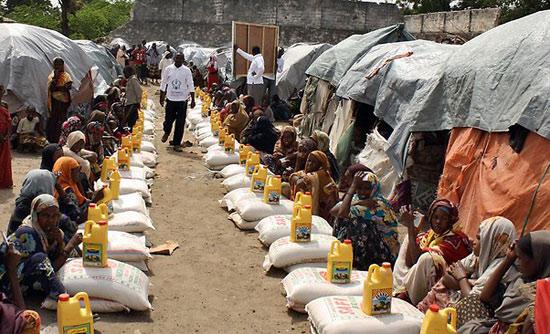Humanitarian agencies in Somalia launch $885m funds appeal

Humanitarian agencies in Somalia have today launched a $885 million funds drive to provide urgent life-saving assistance in the Horn of Africa country by the end of 2016.
The Humanitarian Response Plan has called on the international community to ensure predictable and timely funding for about 4.9 million people in need of urgent support.
The agencies estimate that out of the 1.1 million people internally displaced in Somalia, an estimated 308,000 children under the age of 5 years are acutely malnourished, with 56,000 other facing the risk of death if not treated.
“The 2016 Humanitarian Response Plan represents a collective vision of the entire humanitarian community in Somalia, which aims to bring down the levels of critical vulnerabilities and reduce the risk of people sliding further into crisis by providing life-saving assistance, building resilience and strengthening protection for vulnerable groups,” said Peter de Clercq, the Humanitarian Coordinator for Somalia.
Clercq said the 2016 plan which is part of the larger three year strategy (2016-2018) aims to reduce the number of people requiring food assistance from 4.9 million to 3.2 million people and reduce malnutrition prevalence rates by the end of 2016.”With adequate support,” said Clercq. “We can reduce deaths caused by preventable causes.”
The return of Somalis who have been in Kenya’s Daadab camp and those fleeing war in Yemen have further reinforced the need for humanitarian support, the agencies said. Almost 30,000 people have returned from Kenya while others are still expected to return this year as part of the Tripartite pact between Kenya, Somalia and the refugee agency UNHCR.
An average of 145,000 people was affected through flooding and drought in the El Niño last year.
Deputy Prime Minister Mohamed Omar Arteh said timely funding has a huge impact on cost-effectiveness and appropriateness of response in both cases, urging support from international partners.
“The 2016 HRP is an opportunity to strengthen collaboration in addressing both life-saving and long term development needs through existing initiatives, including the New Deal framework,” said Arteh.